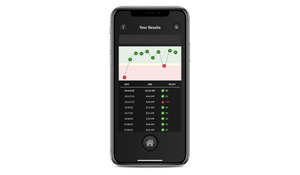No Workplace is Immune to Impairment Risk
Many employers may not fully realize the potential hazards that impairment and diminished alertness present in their workplaces, especially if employees' job tasks are safety-sensitive, involve heavy equipment, or require a high degree of technical skill.![]()
Some managers using traditional approaches to workplace safety may assert that showing up to work alert and unimpaired is merely a personal responsibility and that watching for signs of impairment in the workplace is not their job. But often this point of view is coupled with a narrow understanding of impairment itself, based on an assumption that impairment is always connected to drug and alcohol use. In fact, impairment has many potential causes that are common to everyone, such as fatigue and illness, and which are unrelated to the use of controlled substances.
Some employers may assume that because they have not observed impairment of workers at their worksites or have not experienced an impairment-related accident, impairment among their workforce is not an issue. However, because all people are susceptible to impairment, impairment risk always exists and must be managed. Obviously, it is best to manage risks before they lead to problems, rather than managing them in the aftermath of an impairment-related accident.
The Keys to Detecting Signs of Impairment in the Workplace
A key to recognizing an impaired employee is to understand that impairment can arise from a variety of factors, and is not simply a matter of looking for drug or alcohol intoxication. Shift work itself is known to contribute to fatigue symptoms, for instance, simply because of the way the schedule combatS with natural circadian (sleep/wake) cycles. Rotating shift schedules exacerbate this issue and contribute to workers commonly experiencing "jet lag" when adjusting to a new shift pattern.
In fact, research has shown that the effects of insufficient sleep are comparable to that of moderate alcohol intoxication.
This is notable especially because being fatigued at work is common and often acceptable, even expected in our society, while being drunk at work would never be tolerated.
Plus, not all impairment is visibly apparent, and an impaired employee may even attempt to hide his or her impaired state. This may happen if the employee has experienced some emotional trauma or is mentally distracted and does not want to draw attention to his or her personal issues. Employers and supervisors must realize that emotional issues and preoccupation are less easily observed than intoxication, for example, but can create risks to safety and productivity that are just as serious.
Because of these things, identifying the signs of impaired employees without tools is a difficult prospect, especially if supervisors are responsible for large crews and cannot sufficiently observe every employee to assess their fitness for work individually.
As a result, detecting impaired employees requires a general tool that measures individual performance reliably but also quickly enough that it does not disrupt normal routines and workflows.
Predictive Safety's AlertMeter® fits this description and can be set up easily in virtually any work environment. AlertMeter® does not require proprietary hardware, and employees often find they enjoy the daily insight into their cognitive state that AlertMeter® provides them. Using AlertMeter® has been shown to reduce drug testing costs, improve productivity, reduce employee turnover, and significantly reduce the number of workers' compensation claims filed, which means a safer workplace.



